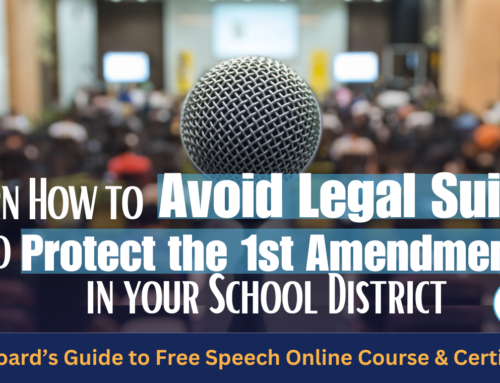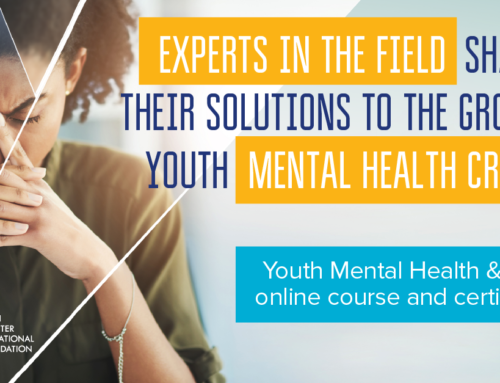
The U.S. Census Bureau found that 47% of US children ages 3 and 4 were enrolled in preschool in 2019.
The Bureau also noted a growing trend of children enrolling in the country’s public and private preschool services between 2005 and 2019, with the majority of enrollment occurring in public preschool.
As more parents invest in preschool for their children, the White House has put a greater focus on these services for America’s toddlers. President Obama sought to expand early learning initiatives, while President Trump advocated cutting funding from the preschool development grant program, funneling extra funds into Head Start programs instead.
Recently, President Biden introduced his American Family Plan, which includes education provisions for the average American preschooler. WLNS reports, “Biden’s plan calls for free, quality preschool for all 3- and 4-year-olds, according to the White House….The Biden administration seeks to boost the prosperity of the lower and middle class by allowing parents to place their children in child care and return to work. For those in most need of financial help, according to the plan, child care will be fully subsidized.”
While, in some ways, the emphasis on early learning and related policies may have merit, there might actually be long-term negative impacts on young children placed into preschool. Psychology Today notes that several studies, both at home and abroad, have validated these concerns.
One segment of society wonders if preschool is even necessary. As early as 2013, The Huffington Post asked these probing questions: “Preschool must all too often be purchased for a hefty price. In fact, preschool expenses are one of the most surprising costs of having a young child. So many of us pay the asking price, but is that cost really necessary? Are there less expensive options? And is preschool itself really all that important?” (Emphasis added.)
The Huffington Post was undoubtedly not the first to question whether or not American toddlers should be shuffled off to preschool. While data in 2013 seemed to support a focus on preschool for three and four-year-olds, more recent data may turn this tide.
What does the latest research suggest?
A Tale of Two Studies
“If President Biden’s plan for universal state-run preschool for 3- and 4-year-olds is approved, the results could be disastrous.”
You have Psychology Today to thank if this ominous warning causes you to choke on your confidence in universal preschool for your toddler.
Offering an in-depth examination of a study out of Germany, Psychology Today notes that there are serious academic implications for students who begin their schooling too early. Similarly, the magazine cites a recent study out of Tennessee, which appears to support the findings in Germany.
The results of both studies suggest that parents might want to keep their kids home just a little bit longer.
“In brief, the Pre-K group performed better than the control group on all academic measures at the beginning of kindergarten, but the control group soon caught up and, by third grade, the control group performed better on all academic measures than the pre-K group. Moreover, by third grade, those in the pre-K group were significantly more likely to have been diagnosed with a learning disorder and had a higher rate of school rule violations than those in the control group.”
It may seem counterintuitive, but research seems to indicate that children do not benefit from deliberate early learning initiatives. Waiting appears to be better when it comes to academic instruction.
However, children are hardwired to learn, so what does this research mean for preschool?
Intellectual vs. Academic
There is a common belief that children should begin learning very early.
President Barack Obama advocated for this idea in his 2013 State of the Union Address: “Education has to start at the earliest possible age.”
In a sense, this is true.
However, an often-forgotten key point is that children begin learning the moment they are born. “Education” doesn’t necessarily have to include academic instruction. Educational methodologies such as Montessori and Waldorf use this knowledge as their guiding principles.
Since children are pre-programmed to explore, learn, and expand their horizons, the question really becomes, “Is the early learning model of universal preschool advantageous to the average three and four-year-old?”
There is a case to be made that young children learn better through exploration rather than instruction. Slate explains the outcomes of two individual studies, one through a laboratory at MIT and one from UC-Berkeley. Both labs ended their studies with similar results supporting the superior results of exploration compared with instruction through various experiments with preschool-aged children.
Discovery Early Childhood EDU merges the concept of preschool with children’s ability to learn as their second nature. “Kids are learning all the time. At this age, they are curious about everything and ready to soak up knowledge. Preschool allows children to develop and boost their language, cognitive, social, and emotional skills, along with an introduction to academics. Preschool is a child’s introduction to this type of educational structure and promotes later school readiness.”
But is there compelling evidence that academia at the tender ages of 3 and 4 is beneficial long-term?
After presenting data that appears to support early academics, NPR notes that as far as testing goes, early enrollment in preschool didn’t give the students any clear advantage. The final conclusions of studies they cite seem to indicate that “the true value of preschool is helping little ones to develop ‘non-cognitive skills,’ like emotional and social intelligence, grit and respect for the rules.” Attending preschool as a 3 year old doesn’t enrich their academic experience long-term, but it might be beneficial socially.
Psychology Today acknowledges that a preschool experience can have a positive effect on children’s intellectual skills, while simultaneously stunting their academic health. “Children growing up in a literate and numerate environment, for example—such as an environment in which they are often read to and see others read, in which they play games that involve numbers, in which things are measured and measures have meaning—will acquire, in their own ways, understandings of the purposes of reading and the basic meaning and purposes of numbers.”
The magazine goes on to note that teaching academics to three year olds in a preschool setting is worse than useless. A child must discern the intellectual value of reading or numbers before they can apply themselves productively to the academic side of these exercises.
Psychology Today makes a clear point: children as young as three and four don’t have the sociological intellect to justify academic studies of any sort, but academic exposure through the experiences of others may hold intellectual value.
Rethinking the Preschool Model
The primary question this article was designed to answer is “Are 3 and 4-Year-Olds Really Better Off in Universal Public Pre-K?”
Now, a secondary question should be proposed. “Is the contemporary model for preschool a productive one for young children?”
In view of Psychology Today’s point above, perhaps we should restructure the concept of preschool for American kids. While there may not be an argument for beginning academic instruction at such a young age, there can be value in the social exposure available at preschool.
“Preschool is an opportunity for growth. For many children, preschool is their first experience in a structured setting with teachers and groups of children. It’s an opportunity to learn to share, follow instructions, and begin the foundation for learning that will occur in elementary school.”
Here, GreatSchools.org reiterates the intellectual value of preschool. They also note other non-academic positives that preschool can offer, such as:
- Dedicated space to complement children’s social, emotional, cognitive, and physical abilities
- An opportunity to experience social and emotional situations outside the home
- Structure
- An appropriate amount of self-sufficiency and responsibility
- Exercise and promotion of cognitive, language, and motor skills
These attributes of a preschool setting can encourage children to learn and grow without hampering them with unnecessary academic instruction.
(It’s important to note that all of this can be accomplished at home by a dedicated caregiver or parent. Homeschooling families are a wonderful example of this. However, for some families, an in-home experience is not the best option, and a carefully selected preschool might be the answer that you’re looking for.)
Peter Gray, Ph.D., offers his professional perspective. “My hypothesis is that Head Start and other programs for young children would work better if we removed the schoolishness from them and reverted to a greater focus on care. Care means…providing them with healthy meals, medical attention, a safe place to spend the day, and lots of opportunity to play and explore with other kids….If these are provided, academic improvement will follow; it doesn’t have to be forced.”
The Takeaway
Research has yet to offer a definitive answer concerning the benefits of preschool for 3 and 4 year olds.
Individual experts have concluded that academic instruction at such an early age doesn’t have any long-term benefits and might actually hamper later academic pursuits.
There is value in the social and intellectual aspects of preschool, but these can be effectively learned at home given the proper setting. The good thing is that in a preschool setting, these don’t appear to have any detrimental affects for the child further on down the road.
One can hope that any preschool and early learning initiatives from the White House and Congress will offer American families the chance to give their children an excellent preschool experience.
You can act confidently by hand-picking your child’s preschool options and considering all the available facts before choosing the best one for your family.





[…] through play is a centuries-old strategy. It may seem counterintuitive, but research indicates that children do not benefit from deliberate early learning initiatives. Young children are […]
[…] through play is a centuries-old strategy. It may seem counterintuitive, but research indicates that children do not benefit from deliberate early learning initiatives. Young children are […]